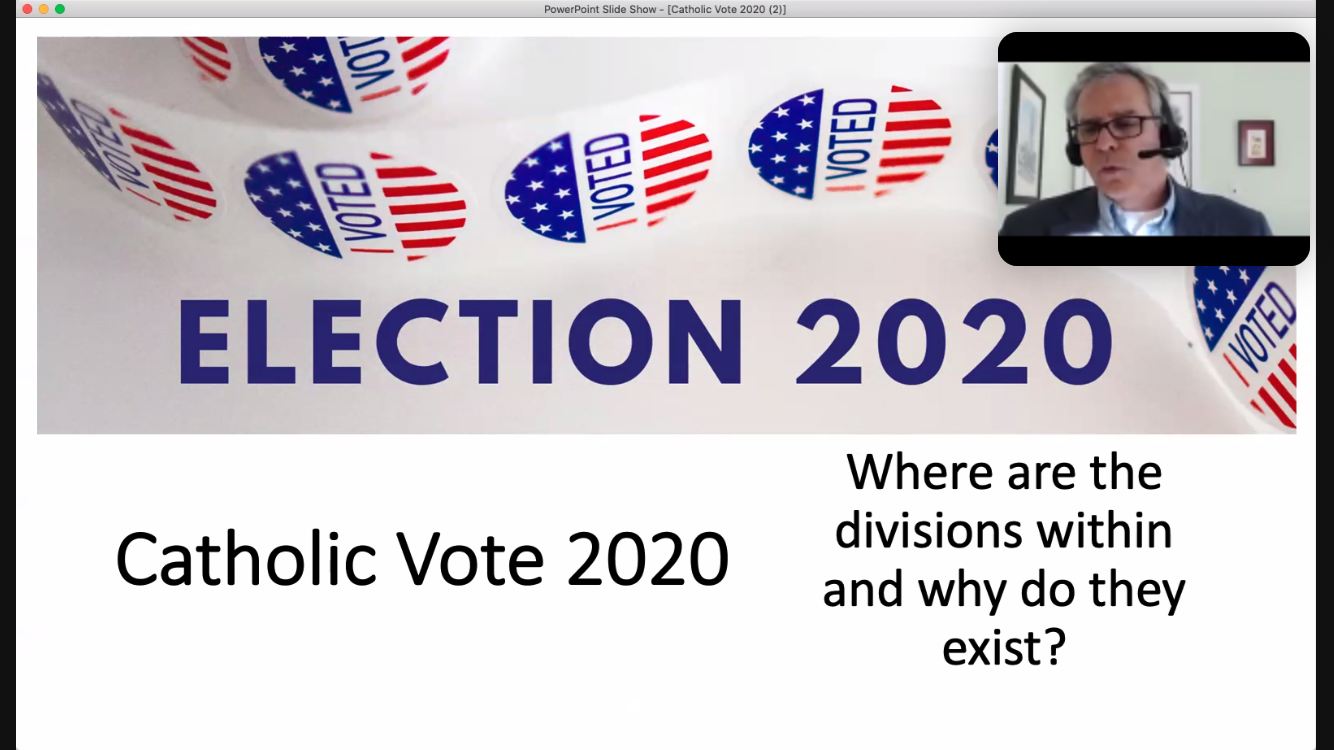
The 2020 presidential election was very different compared to past elections, mostly because of the inherent differences between Trump and Biden. Throughout all of the debates and speeches, the country has become more politically divided. A brief presentation about the divisions in the Catholic vote took place as a virtual event on January 28 from 2 pm to 3:30 pm, and it was facilitated by University Chaplain Father Dennis Lewandowski and Dominic Colonna, a Professor in the department of theology.
This presentation was a follow-up event to the original presentation that happened last year in October called “Catholic Vote 2020: How will Faith Be a Factor?” that featured three panelists: Professor Cathleen Kaveny, from Boston College; Matthew Sitman, associate editor of Commonweal; and Kenneth Woodward, former religion editor of Newsweek.
The purpose of this follow-up event was to examine the history of Catholic voting in national elections and to identify the value that Catholic voters bring to this process. Another purpose of the event was to further dispel the notion that there is a Catholic voting block.
“There seems to be a misconception that the Catholics in the United States vote as a block during national elections,” said Lewandowski. “History suggests this might have been valid during the 1960 election of John F. Kennedy as the first Catholic president in the United States.”
Lewandowski went on to say that during that election, President Kennedy received 78% of the Catholic vote and Richard Nixon received 22% of the Catholic vote.
The presentation was especially beneficial for students who are interested in the political process, as well as students who are studying theology and political science, while also learning how these two disciplines intersect.
At the start of the event, Colonna and Lewandowski introduced themselves and started the conversation about the divisions between Catholics during the 2020 election. They stated the goals for the group conversation which included opening up a community conversation, heighten an awareness of the complexity of the situation, considering the opportunity to reflect on the role of faith in a secular society and then they explained why the two of them decided to collaborate on this event.
“Now that the 2020 election is over, it’s time to dissect various components that are part of the voting practices of our citizens,” said Lewandowski. “For me, there is value in looking at the results of elections to identify trends that were not obvious before the election.”
Besides students benefiting from this event, the whole Lewis community can benefit from it by learning about where the divisions are and why they exist, while also having a deep and meaningful discussion about this issue with others.
“The wider Lewis community is provided with an opportunity to have a conversation that is respectful and allows for one to express themselves in a safe environment,” said Lewandowski. “It is a place that allows one to hear a different perspective and learn from interacting with each other.”
Photo credit: Katelyn Leano
